Past Bluhm Lectures
Heinz Bluhm Lectures 2023-2024
Heinz Bluhm Lectures 2022-2023
Heinz Bluhm Lectures 2019-2020
Heinz Bluhm Lectures 2018-2019
Heinz Bluhm Lectures 2017-2018
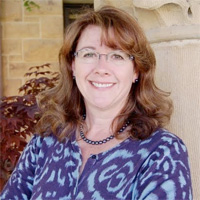
Elaine Treharne
ELAINE TREHARNE
"Momentary Presence and Manuscript Permanence in Digital Space"
Thursday, November 17, 2017
5:30 p.m., Higgins Hall, Room 300
This lecture will discuss the manuscript as a vessel that carries the memorialized presences of people from the past into the present. From medieval "Books of Life" to nineteenth-century autograph books, often the only vestiges of a person’s existence are the names recorded on pages that have withstood the passage of time. Prof. Treharne will discuss multiple examples of this phenomenon of human endurance, both within the physical book and as demonstrated through the medium of the digital. How can the digital realm be best deployed to represent the permanent record of those who made even the most fleeting of efforts to be remembered?
Elaine Treharne is Roberta Bowman Denning Professor of Humanities at Stanford University. She is the author of Living Through Conquest: The Politics of Early English, 1020 to 1220 and A Very Short Introduction to Medieval Literature and editor of Old and Middle English: An Anthology (now moving into its fourth edition), among numerous other publications in the areas of medieval studies, manuscript studies, and English literature. Current writing projects include The Phenomenal Book, 500-1200; The Aesthetic Book: Arts and Crafts to Modernism; and Invisible Things (on medieval materiality and culture). Professor Treharne is currently the Principal Investigator of the NEH-funded portion of an inter-institutional grant, "Global Currents: Cultures of Literary Networks, 1050-1900". She is also the Director of Stanford Text Technologies. Formerly, she was Principal Investigator of the AHRC-funded research project and co-authored ebook, The Production and Use of English Manuscripts, 1060 to 1220 (University of Leicester, 2010). Professor Treharne is also a keen advocate and critic of the use of digital technologies in the classroom and in research. With colleagues at Stanford and at Cambridge, she has launched an exciting new online course, ‘Digging Deeper,’ currently featuring two parts: ‘Making Manuscripts’ and ‘Interpreting Manuscripts,’ and a third planned part, ‘Reading Manuscripts.’

SHERRY KAFKA WAGNER
"What the Best College Students Do: Reading, Writing, Creating. A Personal Account"
Thursday, October 27, 2016
5:30 p.m., Higgins Hall, Room 300
Co-sponsored by the Institute for Liberal Arts, the Office of the Associate Dean for the Core, and the Dept. of Romance Languages and Literatures.
Nationally renowned urban planner, museum exhibition designer, and author, Sherry Kafka Wagner is perhaps most known as one of the co-creators of the much-beloved "River Walk" system in San Antonio, Texas (among her many commissions, she also designed the Tip O'Neill Exhibition in BC's O'Neill Library). The story of her life was featured in the acclaimed Harvard University Press book by Ken Bain, What the Best College Students Do (2012), which opens with this description of her childhood beginnings: "Sherry Kafka came from a small town in the Arkansas Ozarks. Her little community in the backwoods of that largely rural state had none of the artistic trappings that would later define her life and make her one of the most celebrated designers and planners in the country.... Her family didn't have much money, and they moved around a lot trying to make ends meet. She went to 16 schools in 12 years."
Ms. Wagner's professional success has in large part been due to her singular ability to "think outside the box." In her lecture she will analyze the development of the creative powers of the human mind, beginning with a description of the roots of her own creativity in the kind of curriculum and extra-curricular activities she pursued as an undergraduate. Prominent among these are the study of literature and language. "For me," Ms. Wagner writes, "books and literature led the way. I would like to explore three main pillars of my experience: reading and listening, the receiving modes of language; writing and speaking, the sending modes; and, finally and most important, creating. This last point, exploring the creative process would receive the most emphasis, with investigation of both individual creativity and collaborative creativity. In my life, literature and language have been the dominant foundation for my experience and understanding of the creative process - but not the only one. As E. O. Wilson has written, 'Science and the humanities, it is true, are fundamentally different from each other in what they say and do, but they are complementary to each other in origin and they arise from the same creative processes in the human brain (emphasis added)'."
Ms. Wagner's lecture is, in effect, meant to be not only a deeply felt defense of the humanities as integral to the undergraduate experience but also very practical advice (to especially young people) about maximizing one's own creative potential (in any field) through the study of literature and language.
Ms. Wagner will be introduced by Dr. Jean F. MacCormack, Chancellor Emerita of the University of Massachusetts at Dartmouth and currently President of the Edward Kennedy Institute for the U.S. Senate in Boston.
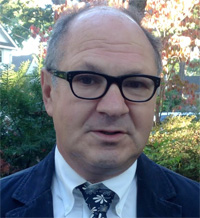
Alexei Bayer
ALEXEI BAYER
"Post-Soviet Crime Fiction: A Genre in Search of Identity"
Wednesday, March 29, 2017, 5:30 pm.
Stokes Hall South 209
Alexei Bayer is a Russian-born business economist, fiction writer, and translator based in New York. Having come to the United States at the age of 19 in 1975, he received his B.A. from Columbia University and a Master's in International Economics from the Johns Hopkins School of Advanced International Studies. He has worked as an economist and economic consultant, writing for a variety of newspapers and journals on Russian economics, politics, and political economy. He has been writing fiction since the early 1990s. His short stories have appeared in the Kenyon Review, New England Review, Salamander and other US literary journals. A collection of his short stories, Eurotrash, was published in Moscow in 2004, in a Russian translation by writer Andrei Gelasimov. He is the author of a series of detective novels set in Moscow in the early 1960s: Murder at the Dacha (2013), Latchkey Murders (2015) and Murder and the Muse (2016). The fourth in the series is currently in progress. Bayer has also translated from Russian a number of works of poetry and prose, both by modern authors and classics, most of them published by Readings/Chteniya, a journal of Russian literature in English.
Mr. Bayer's lecture will discuss the development of the crime novel into a literary genre in the post-Soviet era, focusing on a small number of Russian works that has influenced his own writing. During the Soviet Union period, crime fiction had to toe the official line, since communist society was supposed to be crime-free and "thugs" had to be either outliers or foreign spies. "Noir" was not a possibility. Following the end of censorship, imitations of Western examples flooded the market—gorier, more extravagant and darker than their Western prototypes in order to compete with news items in the Russian media during the "Wild East" days of early, lawless Russian capitalist society. But a series of new, very Russian, and very post-modern novels have also emerged, breathing new life into the genre and attracting millions of readers tired of the older type of ponderous literature. Playing with the Russian concept of “high” literature, which was formed in the 19th century to encompass the works of Tolstoy, Dostoyevsky, Chekhov and other “classics”, these authors adapt this "high" literary genre of tradition to the “low” genre of the new crime fiction. At the same time, they often piggyback didactic, social reformist ideas in the manner of Tolstoy or Dostoyevsky onto a satisfying whodunit yarn.
Video of the lecture from March 29, 2017
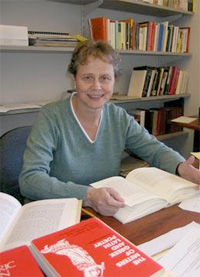
Professor Sheila Murnaghan
"The Stuff of Children's Playthings: Nathaniel Hawthorne's Greek Mythology"
Professor Sheila Murnaghan, Alfred Reginald Allen Memorial Professor of Greek, Department of Classical Studies, University of Pennsylvania
In two pioneering volumes, A Wonder-Book for Girls and Boys (1851) and Tanglewood Tales (1853), Nathaniel Hawthorne transformed classical mythology into pleasure reading for children. As he retold the myths for a new audience, he was clear about the need to suppress darker themes of sexuality and depravity that were present in the mind of the adult story-teller and in the books for adults that he was writing during the same period. This lecture will examine the rhetorical and visual strategies through which Hawthorne and some of his illustrators negotiated the intersection between childhood ignorance and adult knowledge.
Thursday, February 18, 2016
5:30 p.m., Gasson Hall 305 Auditorium
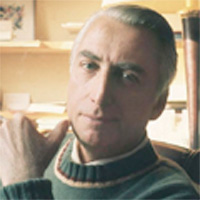
Jonathan Culler
“Barthes in America/America in Barthes”
Keynote address by Jonathan Culler, Cornell University
Friday, November 13 and Saturday, November 14
Stokes Hall Auditorium
Conference Program
Friday, November 13
5:00 p.m.
Opening Remarks, Kevin Newmark, Boston College
5.15 p.m.
“Barthes in America/America in Barthes”
Keynote address by Jonathan Culler, Cornell University
6:00 p.m.
Reception
Free and open to the public
Refreshments will be served
Saturday, November 14
9:00 a.m.-4:45 p.m.
Graduate Conference
5:00 p.m.
Roundtable with a Response to Jonathan Culler's Keynote by Larysa Smirnova, Boston College
5:45 p.m.
Closing Remarks, Mattia Acetoso, Boston College
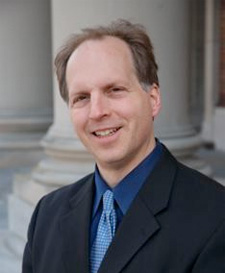
Professor Jan Ziolkowski
Boston/Cambridge and the Making of American Gothic
Professor Jan Ziolkowski, Arthur Kingsley Porter Professor of Medieval Latin and Director of the Dumbarton Oaks Research Library and Collection, Harvard University
Thursday, March 26, 2015
5:30 p.m., Stokes S195 Auditorium
This lecture will discuss the great vogue for all things medieval in the Boston-Cambridge area in the late nineteenth and early twentieth centuries. Among the topics discussed will be historian and intellectual Henry Adams (descendant of the presidential family) and his influential book, Mont Saint Michel and Chartres, as well as architect Ralph Adams Cram and the Gothic Revival he created in architecture, especially the Collegiate Gothic style (splendid examples of which are the original buildings of the Boston College campus). The lecture will be extensively illustrated, both visually and textually.
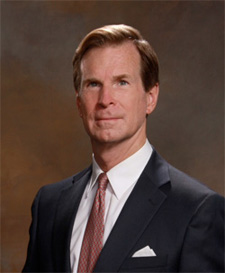
Dr. Charles Scribner, III
From Paradise to Party Lights: Fitzgerald and Gatsby
Wednesday, April 15, 2015
5:30 p.m., Devlin 101
What makes Gatsby great? F. Scott Fitzgerald's The Great Gatsby today sells more copies each fortnight than the total cumulative sale during the author's lifetime. Charles Scribner—the fourth generation of Scribners to oversee Fitzgerald's works at the family publishing house—will offer both a personal and professional perspective on this legendary Jazz-Age writer, the "Last of the Romantics," and his iconic novel that still defines the magic of American self-invention.
Sander L. Gilman, University of Chicago
"Jurek Becker and Cultural Resistance in the German Democratic Republic"
13 April 2000
Annabel Patterson, Yale University
"More and Melanchthon: Faces of Principle in Early Modern Europe"
28 September 2000
Robert Louis Jackson, Yale University
"Alyosha’s Speech at the Stone: 'The Whole Picture'”
29 March 2001
Stephen Greenblatt, Harvard University
"Hamlet in Purgatory"
30 October 2001
Neil Hertz, the Johns Hopkins University
"Neutral Territory: Henry James and Marguerite Duras"
21 March 2002
David Ferry, Wellesley College
"Robert Frost Reading Virgil and Horace"
18 November 2002
Denis Feeney, Princeton University
"Barbarians meet the Muses: The Invention of Roman Literature"
27 March 2003
Avital Ronell, NYU
"The Test Drive: On Trials, Torture, and Hypothetical Positing"
26 April, 2005
David Bethea, University of Wisconsin
"Pushkin at the Imperial Lyceum: A Sentimental Education for an Unsentimental Upbringing"
30 March, 2006
Ross Chambers, University of Michigan
"How to Invent Unknowness: The Poetry of Disenchanted Reenchantment"
19 April, 2007
Daniel Heller-Roazen, Princeton University
"Along Liquid Paths: A Genealogy of Piracy"
3 April, 2008
Cathy Caruth, Emory University
"Lying and History: On Two Late Texts by Hannah Arendt"
2 April, 2009
Richard Martin, Stanford University
"Lost Boys and Lethal Toys: Attaining Manhood in Greek and Irish Saga"
29 October, 2009
Samuel Weber, Northwestern University
"On the Singularity of Literary Understanding: 'Still Ending…'"
22 April, 2010
Kanan Makiya, Brandeis University
"Totalitarian Art: What it is, by Comparison to Islamic Art"
27 April, 2011
Maria Tatar, Harvard University
"From Hunger Narratives to Hunger Games: Fairy Tales in an Age of Electronic Entertainments"
22 March 2012
Jonathan Culler, Cornell University
"Theory of the Lyric"
22 March 2013
David Quint, Yale University
"Renaissance Creators and Moderns: The Cases of Dante, Ariosto, and Michelangelo’s Sistine Chapel"
10 April 2014
The lecture series suspended in Academic Years 2020–2021 and 2021–2022 due to the COVID-19 pandemic.

